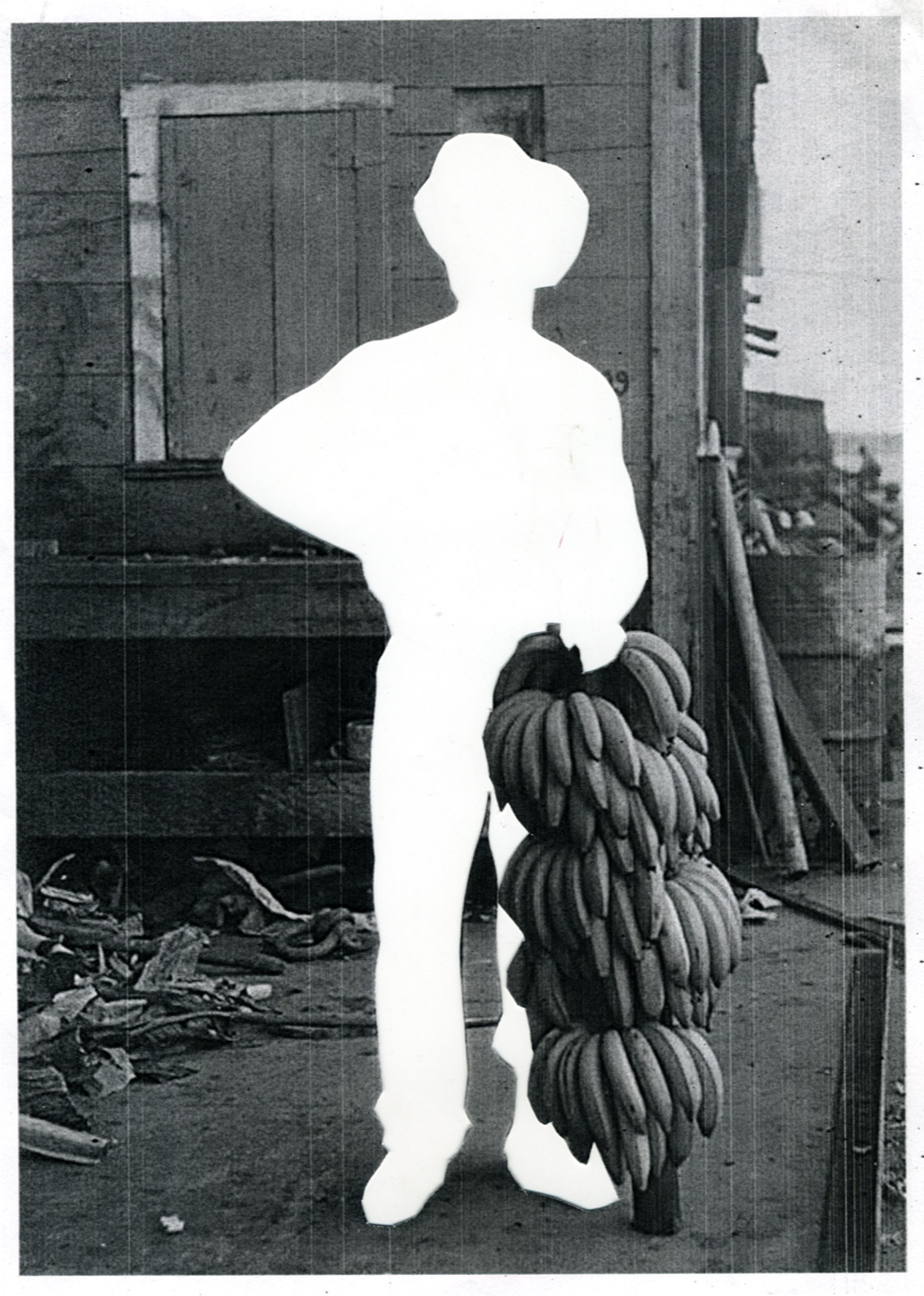ARTIST |
Andrea Chung |
TITLE |
Daylight Cum An’ Mi Waan Guh Home |
YEAR |
2008 |
ARTIST’S COUNTRY OF ORIGIN |
United States |
DIMENSIONS |
34 x 38 cm |
TÉCHNIQUE |
Photographic cut-out |
Credits: Courtesy of the artist and Tyler Park Presents
This work is part of Andrea Chung’s May Day series, in which the Caribbean-American artist gives time off to the workers pictured in 19th-century Caribbean photographs by erasing their figures from the images (the title of the series alludes to May Day, International Workers’ Day). An avid student of the history of the photographic medium, Chung is interested in how, since its inception, photography has often omitted the reality of slavery, thereby erasing it from the construction of historical narratives. For Chung, the Caribbean is a performative territory in which, as with history, the past is continually (re)interpreted for consumption in the present, often reproducing neo-colonial dynamics in the visual representation of the place. Here, the artist draws on a photographic corpus composed mainly of postcards created for the tourism industry in the nineteenth century in which plantation life in the time of slavery seems to be evoked for the enjoyment of a white consumer. In this image, the body of a worker (probably of African descent) resting his weight on a large bunch of bananas is cropped in such a way that the glowing white of the void generated by his absent figure contrasts sharply against the gray background of the photograph in which are visible a precarious wooden building and a pile of rubbish on the floor (in short, the legacy of white culture is obscured by turning gray while the black body glows with white light). The worker’s body needs to be whitened to get its deserved rest and, at the same time, this striking whiteness draws attention to his—usually invisibilized—work. As for the bunch of bananas in this photograph, the fruit seems to offer itself to the viewer as a picturesque fantasy, just as the black body is photographed as an object to be consumed by the white gaze. Both the banana and the worker are bearers of the history of the African diaspora, uprooted from their place of origin and forced to develop under the abusive logic of white capitalism in an alien and foreign context.




